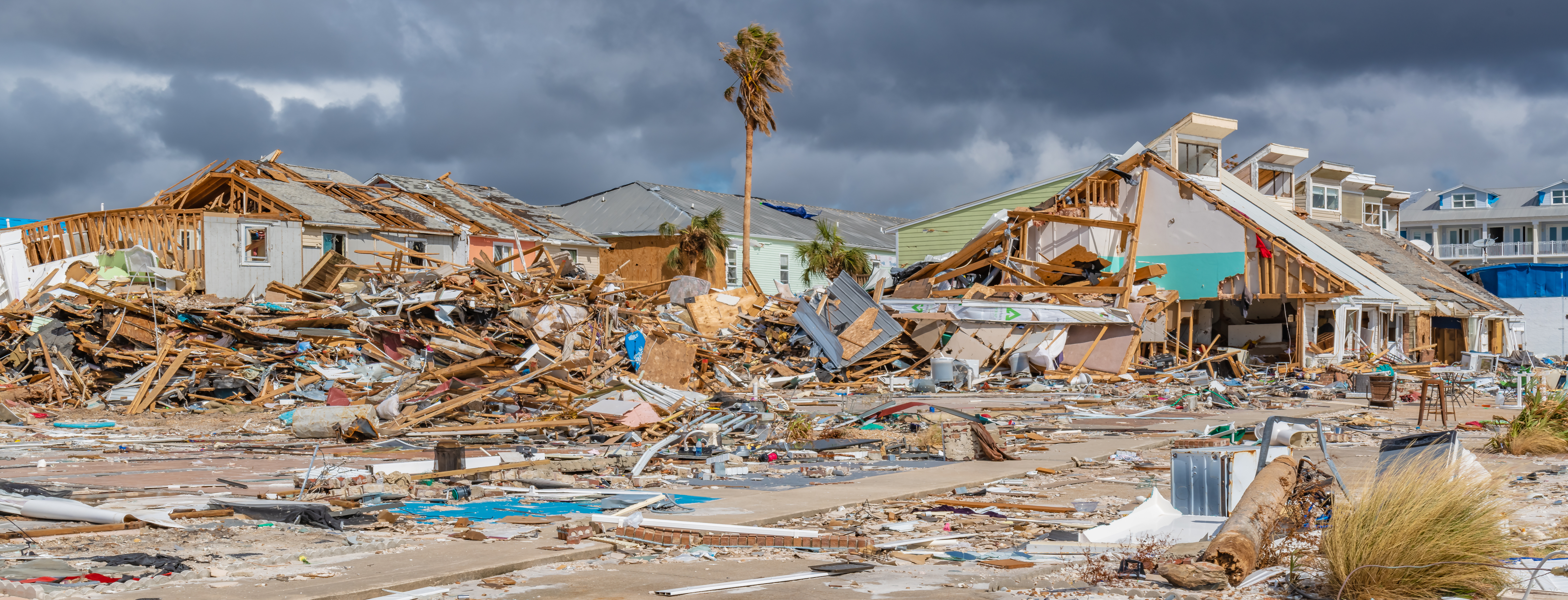
The U.N.'s Intergovernmental Panel on Climate Change (IPCC) recently published a sobering report summarizing that humanity is woefully behind curbing climate change, with a lead author warning:
“The climate time bomb is ticking. But today’s IPCC report is a how-to guide to defuse the climate time bomb. It is a survival guide for humanity,” he said. “As it shows, the 1.5-degree limit is achievable. But it will take a quantum leap in climate action.”
Without a quantum leap in action, our society and planet will continue to experience major climate change impacts. Within the past year alone, our changing climate unleashed a supercharged 2022 Atlantic hurricane season and a series of unrelenting atmospheric rivers that dropped copious amounts of rain along the California coast causing homes and critical infrastructure to slide into the ocean. On the other side of the country, the continued pattern of homes falling into the ocean happened again in Rodanthe, North Carolina–making it the third house within a year to fall into the ocean in this area.

Three major hurricanes dominated the 2022 hurricane season. Hurricane Ian wreaked havoc on Florida’s Gulf Coast, Atlantic Coast and the Carolinas. Hurricane Fiona unleashed catastrophic flooding across Puerto Rico, ripping apart infrastructure and shutting down running water and electricity for weeks. Hurricane Nicole catalyzed devastating beach erosion and measurable losses to Florida’s built and coastal environment.
A warmer ocean and climate mean more water in the atmosphere, which fuels stronger, wetter storms. With rising seas projected to reach up to seven feet by the end of the century, we can expect these storms to be even more devastating when they hit our coastlines.
Unwieldy atmospheric rivers and hurricanes overburden our wastewater systems releasing massive quantities of pollution into the ocean (i.e. sewage and urban runoff). Increased pollution not only impacts human health, but also interferes with marine ecosystems.

For example, a 5,000 mile-long blob of seaweed is headed for Florida’s beaches on the Gulf of Mexico. The seaweed blob known as sargassum naturally occurs in the central Atlantic Ocean, but has been drastically intensified due to climate change and excessive pollution and urban runoff. In addition, Harmful Algal Blooms (HAB) have plagued southwest Florida over the past six months. These HABs are perpetuated by a warming ocean and runoff associated with climate-fueled storms such as Hurricane Ian.
While climate change has accelerated in recent years, progress has been made under the Biden Administration. In fact, a few weeks ago, President Biden released a new plan that specifically aims to leverage the ocean as a powerful source of climate solutions. The plan focuses on accelerating nature-based solutions and enhancing community resilience to protect and support coastal and ocean systems that store greenhouse gasses, reduce the climate threat, and protect communities against extreme weather and rising seas.
Earlier this month the Surfrider Foundation met with the Deputy National Climate Advisor for the Biden Administration. We discussed how climate change connects to many issues Surfrider is working on (clean water, beach access, plastics, etc.). We also discussed the economic impacts climate change is having on coastal communities (including recreation and tourism) and the need to proactively plan for sea level rise and extreme weather events.
The meeting ended on a high note as we discussed the solutions Surfrider is working on such as helping local municipalities update land use plans to better protect coastal communities and resources and how we are implementing nature- based solutions, such as protecting and restoring mangroves, sand dunes, and coastal wetlands that act as a barrier against climate change impacts and pull carbon from the atmosphere.
Surfrider’s new strategic plan specifically elevates our focus on climate change action. In the coming years, we will continue to tenaciously advocate at the federal, state and local levels to ensure strong climate laws and policies are passed; and increase our ‘on the ground’ work to help communities adapt to impacts and implement nature-based solutions.

